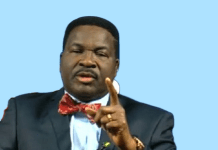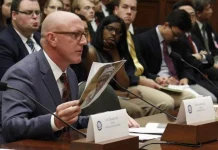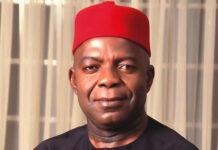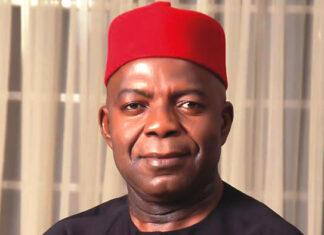Nigeria’s digital economy will rise or fall on the country’s ability to embrace green technology and innovation, according to Kashifu Inuwa, Director General of the National Information Technology Development Agency (NITDA).
Speaking at the 3rd Technology Ecosystem Dialogue (TED 2025), organised by the Young Innovators of Nigeria (YIN), Inuwa urged stakeholders to see sustainability not as an option but as a necessity. Themed “Green Tech and Energy Revolution: Transforming Business and Society,” the two-day dialogue convened policymakers, innovators, and industry leaders to explore how technology can power sustainable development.
Commending YIN for its role in nurturing young talent, Inuwa said Nigeria’s youth have moved from being “leaders of tomorrow” to “change-makers of today.” He tied the forum’s theme directly to President Bola Ahmed Tinubu’s Renewed Hope Agenda, which prioritises economic diversification through industrialisation, digitisation, creative industries, and innovation.

To strengthen the ecosystem, the NITDA chief highlighted several agency-led initiatives, including the establishment of Technology and Innovation Hubs nationwide and programmes such as iHatch, the National Innovation Challenge, IgniteHer, We Elevate, and Renewed Hope Innovation Nest. These, he said, are designed to make innovation inclusive by equipping women, youth, and MSMEs with digital tools to deliver scalable solutions.
“Green technology is not a luxury—it is the foundation of our future,” Inuwa stated. “By embracing sustainability, Nigeria can create jobs, drive inclusive growth, and lead Africa in the global digital economy.”
The DG also called for stronger collaboration between government, academia, industry, and citizens to ensure Nigeria leverages frontier technologies such as AI, IoT, blockchain, and clean energy responsibly.
Delivering the keynote, sustainability expert Dr. Krakrafaa Bestman drew attention to Nigeria’s abundant renewable resources—solar, wind, hydro, and human capital—contrasted against the reality that millions still lack reliable electricity. He said these endowments present vast opportunities to bridge the energy gap while stimulating sustainable growth.
Dr. Bestman outlined Nigeria’s targets to generate 30 percent of electricity from renewable sources by 2030 and to deploy 5GW of solar capacity, citing the Nigerian Electrification Project and mini-grids as critical enablers. He also underscored the importance of a circular economy, where recycling and waste-to-energy solutions reduce pollution while creating new businesses.
For the energy transition to succeed, Bestman stressed three priorities: reforms to attract investment and incentivise adoption; stronger business commitments to clean energy sourcing; and locally adaptable innovations that ensure safety, affordability, and sustainability. However, he cautioned against risks such as battery hazards and poorly installed solar systems, urging strict standards and lifecycle management.
“Green technologies must not only drive businesses but also protect the future,” Bestman warned. “The world is waiting for Nigeria’s leadership in building a resilient and sustainable energy system.”
As TED 2025 concluded, both NITDA and sector experts signalled a common message: Nigeria’s green and digital ambitions are inseparable.
The country’s next wave of economic transformation may well depend on how fast it can fuse sustainability with technology and turn innovation into impact.


























